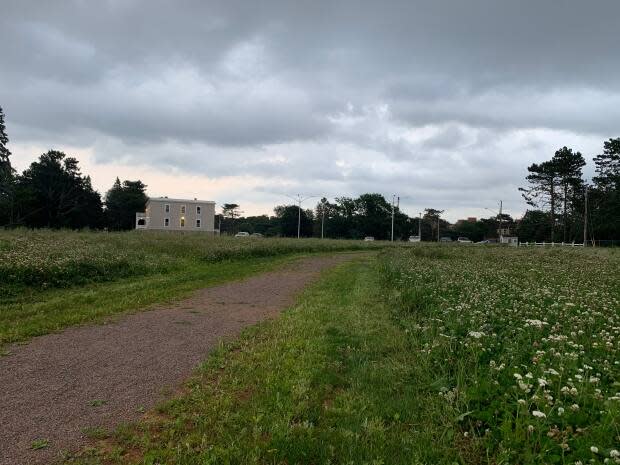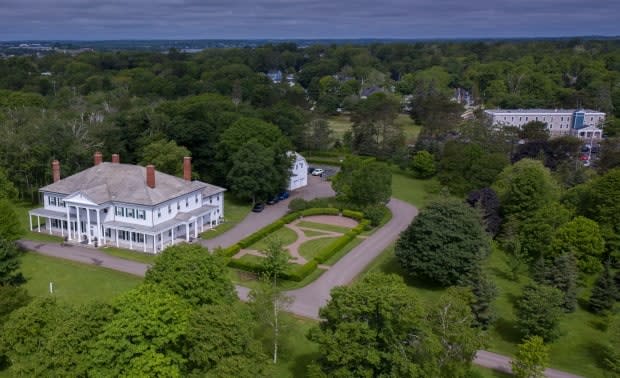Duty to consult: What it means for properties like the former Prince Edward Home site in Charlottetown

Plans to develop a green space on about 1.6 hectares of prime land adjacent to Victoria Park in Charlottetown are on hold while the province fulfils its duty to consult with Indigenous groups on P.E.I.
The province owns the land where the former Prince Edward Home was located and demolished in 2019. It plans to transfer management of the site to the city, but under law must first consult with local Indigenous groups.
Charlottetown Mayor Philip Brown said the city has plans to landscape the area as an extension of Victoria Park where people can gather. The land is bordered by Brighton Road, Terry Fox Drive, Fanningbank and the baseball fields at Victoria Park.
L'nuey, an initiative focused on protecting, preserving and implementing the constitutionally entrenched rights of the Mi'kmaq of Prince Edward Island, and a spokesperson for the province acknowledged consultations are underway, but would provide no other details. They said there is no timeline for when the consultation would be complete.

David Rosenberg, a lawyer in Vancouver who worked on behalf of the Mi'kmaq on P.E.I. in the Mill River case in 2018 but is not part of the Victoria Park consultations, spoke to CBC in general terms about the duty to consult process.
Here is that conversation, edited for clarity and length.
When does the duty to consult arise?
Usually, the duty to consult arises when there's an unproven claim of Aboriginal rights or title. It's a procedural duty in which the Crown has to consult with the First Nation who is the claimant prior to the Crown authorizing a third party to go ahead and do something.
The question that quite often follows is how deep does that duty to consult go. Does it require consent of the First Nations before the disposition can take place, before the property sale can go through?
Can the First Nations veto a land deal?
What the courts have said is the duty to consult is an obligation the Crown has but it is not a veto for the interested Indigenous parties. They do not have the right to block the purported transaction or the Crown-anticipated disposition of property in this case.
So what the Crown is supposed to do is meet with a representative of the First Nation and find out what it can about the strength of the claim of the First Nation and where appropriate accommodate that claim in a way that allows the disposition of the property to occur in a way that will minimally impair the claimed right.
How deep are the consultations?
The courts have said it's not just a rubber stamp or a formality, there has to be good faith negotiations, there has to be good faith consultation, but the level or the depth of the consultation is commensurate with the strength of the claim.
In Prince Edward Island, where at this particular point in time, aside from reserves, there is no proven Aboriginal title to land, the Crown's obligation is to actually look at how strong the First Nation's claim is to any particular piece of land and then, based on the strength of that claim, to decide whether it can be anything as simple as notifying the claimant that the transaction is going to go ahead and giving notice and asking for their input, at the lower end of the spectrum, to at the higher end of the spectrum, almost getting consent.
Should the Crown still seek consent?
Consent is a practical alternative, it is a way that the Crown could proceed so as to avoid any future problems or complications.
What could happen in the future, which could affect every property including the Mill River property, is if there were a successful title claim in Prince Edward Island to any or all of the province that could reshape the entire way of looking at things because we're only talking about the duty to consult in the context of claims, but yet unproven Aboriginal title. Once Aboriginal title is proven, then yes, at that point really consent would be required for any sales of … property by the Crown's private property holders or any development on Aboriginal title land. Really consent would be required except in very extraordinary circumstances.

What determines if a land claim is strong?
The test of law for title is whether or not at the date of the assertion of sovereignty, the Indigenous peoples' ancestors were in exclusive occupation of the property in question.
So what that would mean is if the Crown looked at it and had good evidence of a First Nation occupying that particular piece of land at the exclusion of others, then that would merit a deeper consultation or even an accommodation.
Is exclusive occupancy way back then difficult to determine?
It does involve an examination of the historic record and courts have also said that the Crown should take into account the oral history of the Indigenous people in question to see whether or not there is evidence about a particular claim.
But it is hard, especially on Prince Edward Island, where the date of the assertion of sovereignty was centuries and centuries ago, it is going back in time to try and determine what happened historically.
The First Nation has a corresponding duty to come forward with what evidence it has of its claim and to enter into good faith with the Crown.
Give an example of how consultations have played in other cases
Quite often the First Nation will say ... this is important to us for any number of reasons, from protecting traditional sites to protecting traditional activities.
So the First Nation might say you can go ahead with this but we want to see certain protections put in place.
A second possibility is the First Nation might say well, we claim these resources are ours, or we claim protection for certain activities, and we want to participate in the development or in the royalties or benefits that come from development so we want to enter into discussions about what the Crown will allow us to benefit from in the circumstances, and that can be anything from employment opportunities to sharing in revenue or to sometimes it's as much as having a kind of co-management.
And the Crown might say anything from ... we're not interested in providing you with those benefits or those royalties and having co-management, but we will take into account protection of traditional hunting or fishing areas.
The Crown can give any variety of answers, always recognizing that the courts will be looking at the reasonableness of what's being offered in the circumstances, which include the strength of the claim.
How do cases end up in court?
Where the parties cannot reach a resolution through good faith negotiations or good faith consultations.then it can end up in court. And it has, as you know, with the Mill River property in Prince Edward Island.
All across Canada there have been claims by Indigenous people against the Crown for the failure to fulfil its duty to consult.
More from CBC P.E.I.

 Yahoo Movies
Yahoo Movies 